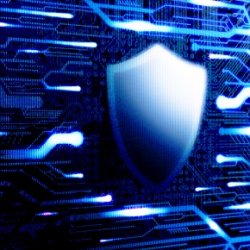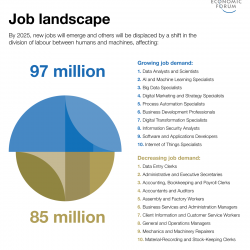preventing cybersecurity employee burnout and churn


Are you a cybersecurity specialist experiencing burnout? Are you staying in consistent anxiety of an event? Can you notice simmering stress at always being understaffed? Do you really feel like you can never ever actually leave job stress behind, even on a day off? You are not alone. And a brand-new campaign could aid.
The PsyberResilience Job defines itself as "the first comprehensive as well as continuous research of the prevalence as well as effect of stress and anxiety, burnout, and also mental wellness challenges in the cybersecurity workforce." And right here is the overarching objective, according to the job: "The greater than 700,000 professionals that comprise America's cybersecurity workforce are progressively being called our electronic very first responders and also unwavering line of defense versus a relentless wave of cyber-attacks against organizations, federal governments, and entire areas.
Not only has cybersecurity come to be a very high stress and anxiety and fast burnout sector, a number of those operating in it went into the area already burdened with psychological health obstacles like anxiety, anxiety, and also PTSD. As these psychological wellness difficulties take a boosting toll on the a currently strained cybersecurity labor force, it's time to build psyberresilience right into your danger monitoring computations." According to PsyberResilience, right here are the leading 10 most common resources of cybersecurity expert stress and anxiety: Unrealistic and also harmful expectations concerning end results as well as outcomes, Expectations set both by employers as well as by the individual protectors, Little time to pause or decompress due to the fact that of the relentless waves of assault, with some records suggesting anywhere from 10,000 to greater than 1 million protection signals daily and also up to 80% false positives, Simmering frustrations with understaffing, Insufficient budgets, Staff members who remain to reverse and also undermine protection efforts, and a management not taking the dangers seriously enough, Exhausting schedules, security professionals complain about always getting on the clock and also on duty, at the very least emotionally, compounded by no real downtime, lengthy hrs, long weeks, as well as even vacations, The tiredness of trying to stay on top of a regularly changing environment, from brand-new risks, methods, and innovations, to new legislations, policies, standards, structures, and requirements, Personal and also specialist pride, as well as the constant anxiety of personal failure, of being the one that lets the group and company down by missing that a person single hazard among thousands, The psychological toll of frequently dealing with and also being subjected to the most awful kinds of crooks, as well as experiencing the ruthlessness they inflict on their victims, An increase in cynicism as well as a decrease in trust fund among safety experts, commonly long-term psychological modifications that they bring residence with them, Protection groups stretched too thinly, which causes larger work, stress to handle too many tasks, and also not being allowed to concentrate on one of the most crucial or relevant obstacles, Pre-existing conditionsmany security professionals come right into the industry with existing mental wellness issues, and especially with a rise in armed forces and regulation enforcement taking care of anxiety and PTSD. The amount of of these can you identify with? It is very important for cybersecurity experts to maintain the electronic globe healthy.
Don't Let Your Analysts Become The Latest Victims Of Burnout!
Nobody should be surprised to discover that IT and also cybersecurity jobs can be extremely difficult. Now, a merging of patterns has, oftentimes, brought this anxiety to a snapping point. Thanks to the surge of the digital supply chain, companies have a lot more potential points of entry to their networks than ever, each of which stands for an included challenge for IT as well as security professionals.
On the other hand, brand-new regulations developed to secure infrastructure and customer data include to the listing of rules and guidelines IT as well as cybersecurity specialists require to adhere to. New tools created to relieve their burden can also add to alert exhaustion and also general workloads. It's not surprising that there's a skills scarcity for many IT as well as security work.
That's according to Deloitte's Office Fatigue Study. In the very same study, nearly 70% of professionals said their companies were refraining from doing sufficient to stop or ease fatigue. Fatigue has come to be so widespread that it's currently an official clinical diagnosis. The World Health Organization lists its symptoms as "feelings of energy depletion or exhaustion," "enhanced mental range from one's task, or sensations of negativism or resentment associated to one's task," as well as "reduced specialist efficacy." That number comes from a survey of 11,000+ workers at modern technology companies conducted by Blind, a confidential social network for tech workers.
Two Tips To Prevent Threat Intelligence Analysts From Burnout
In an age where it can be difficult to locate adequate proficient employees to completely staff a SOC, companies can not pay for high turnover in these positions. And yet, almost two thirds of SOC professionals have considered quitting their jobs as a result of stress and anxiety, according to the Ponemon Institute. Stress in the SOC could be partly because of sharp exhaustion.
Tension in the cybersecurity department isn't limited to analysts. CISOs and various other cybersecurity executives encounter the mixed stress factors of day-to-day protection and other organization problems, and greater than 9 out of 10 CISOs are stressed because of this. In the same study from Nominet, 27. 5% of CISOs stated anxiety impacts their capacity to do their work.
On top of that, according to (ISC) 2, nearly 60% of global organizations said their firms are at modest or extreme danger of cyber strikes because of this skills shortage. Why should employers care about https://renitconsulting.com/case-studies/ burnout in the IT industry? Since if employees leave their positions as a result of tension, employers won't necessarily be able to replace them.





Ingen kommentarer endnu